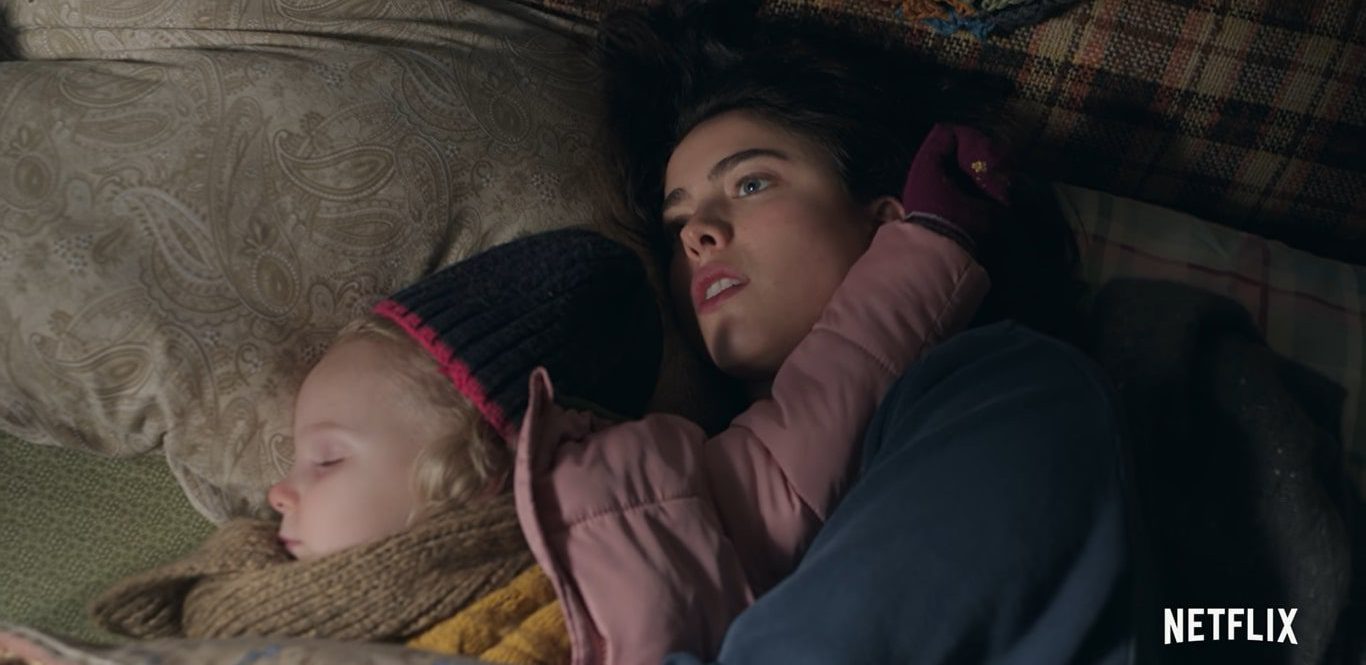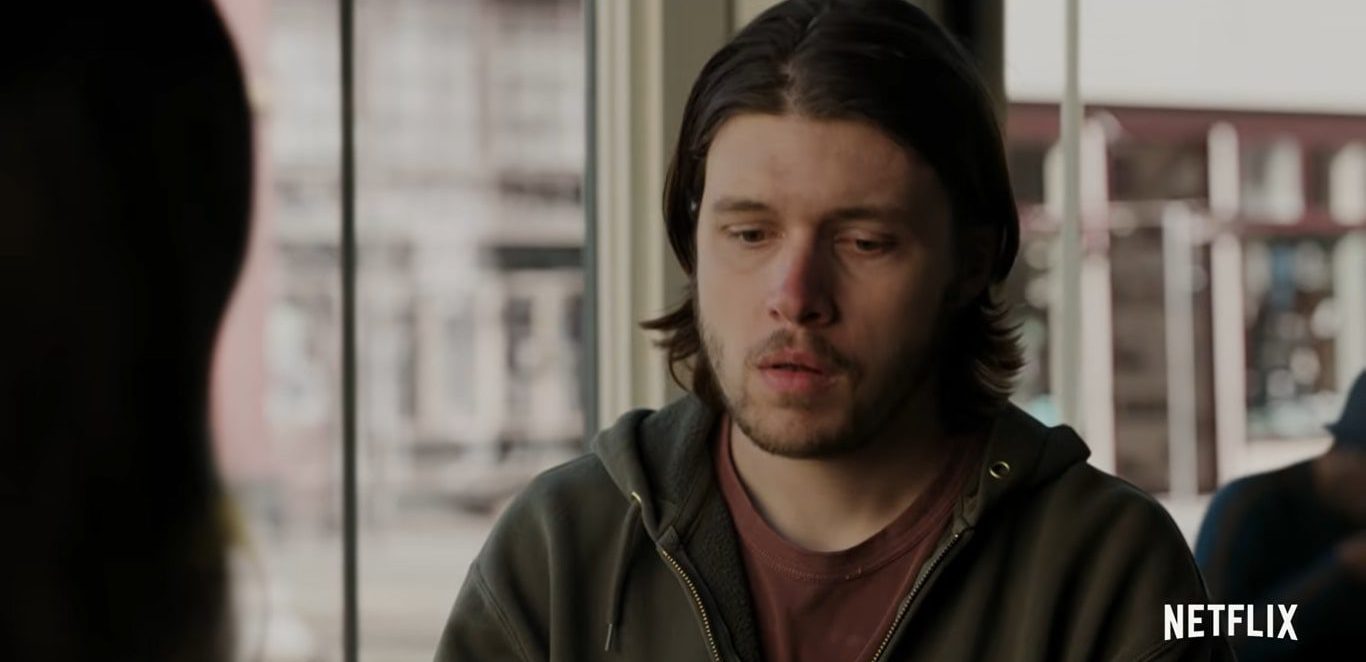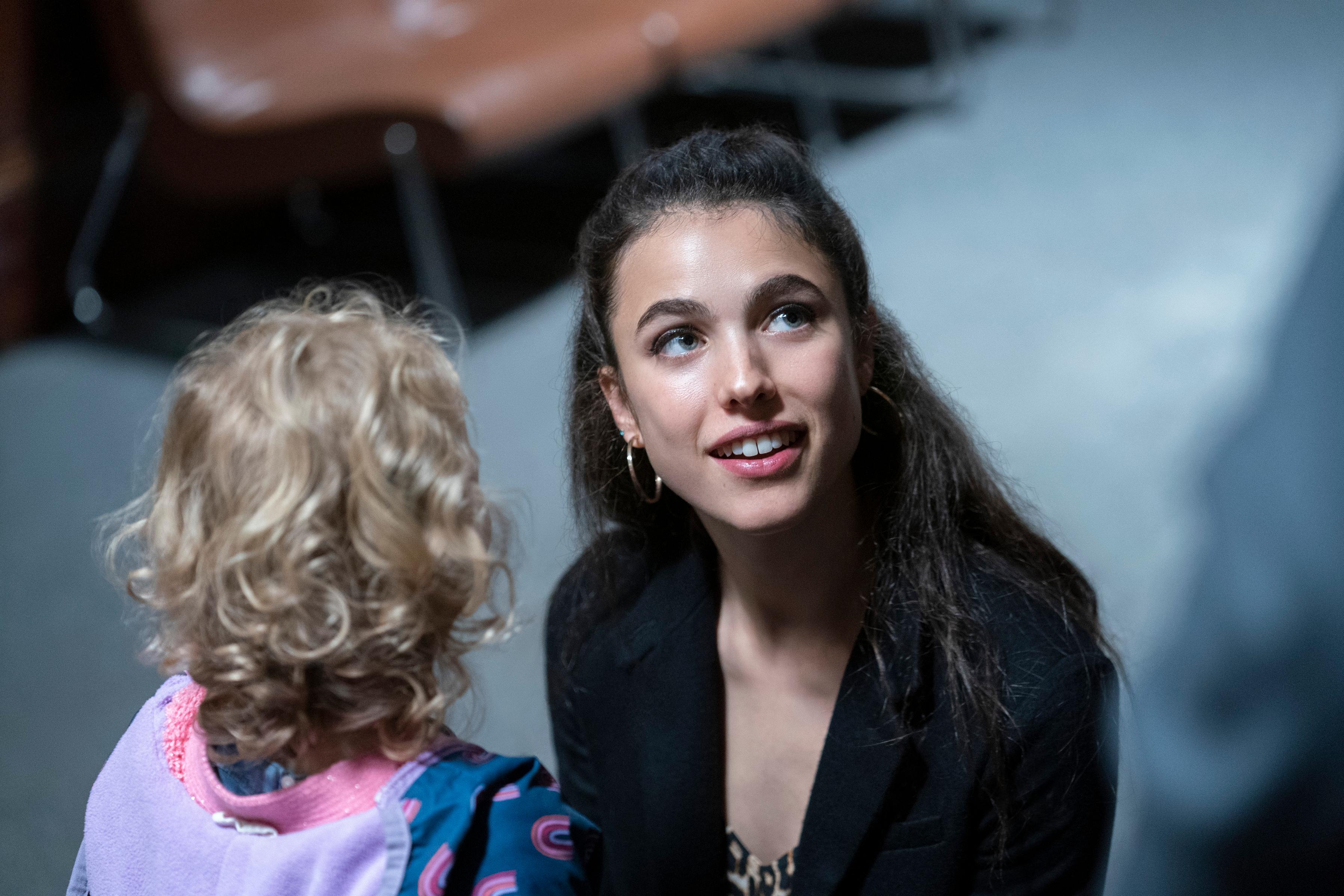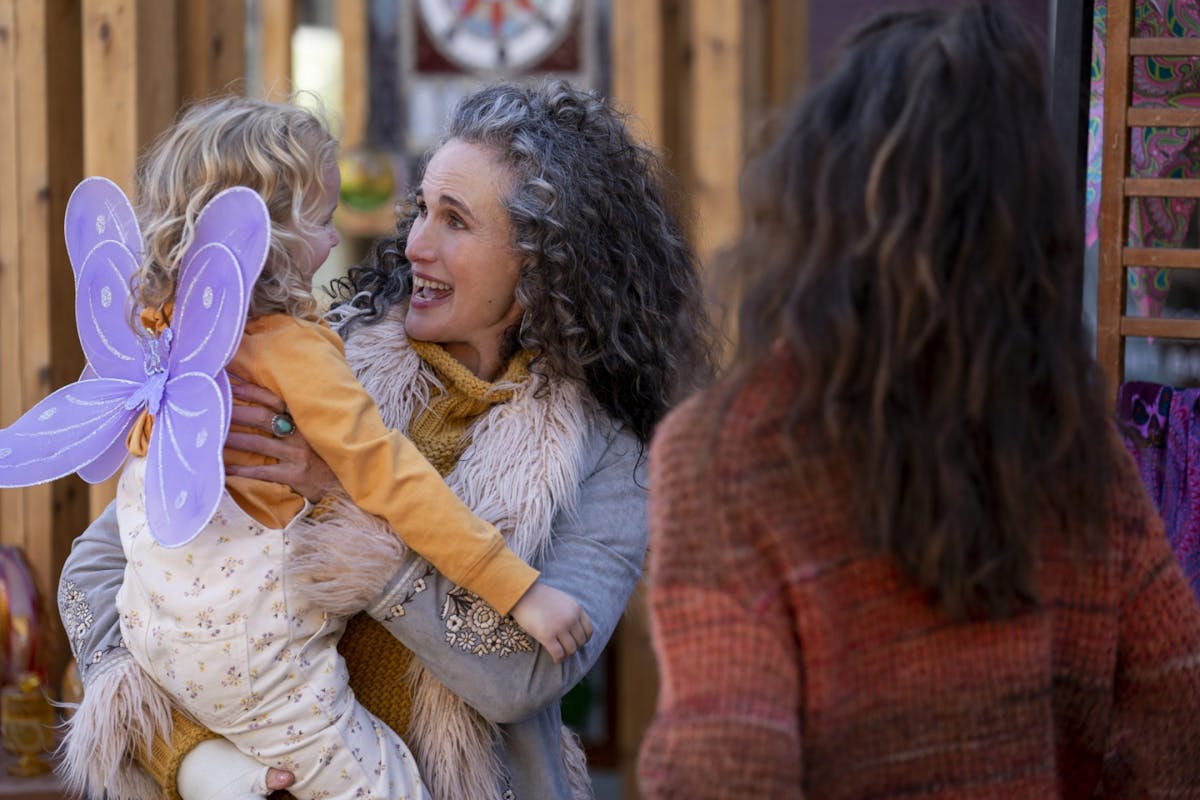Netflix’s new limited drama series Maid, created and partly written by award-winning playwright and screenwriter Molly Smith Metzler, inspired by Stephanie Land’s remarkable 2019 memoir Maid: Hard Work, Low Pay, and a Mother’s Will to Survive, is a gut-wrenching and unfiltered portrayal of the trials and tribulations of single motherhood and poverty in America. Set in the fictional towns Port Hampstead and Fisher Island, the fictional version of Port Townsend, Washington, in the present day, it revolves around Alexandra aka Alex (played by Margaret Qualley), a struggling young mother, who decides to leave a toxic and emotionally abusive relationship to provide a better life for her 3-year-old daughter, Maddy (played by Rylea Nevaeh Whittet).
This heartbreaking portrait traces the journey of Alex every step of the way from destitution and dependence to physical and financial independence and freedom to explore life on her own terms. It also shows the resolve of Alex to take up the job of a house maid/domestic worker and navigate America’s broken welfare system to break free from the vicious circle of intergenerational trauma and abuse. This devastatingly painful story emphasizes the excruciating hardships every domestic abuse victim gets exposed to when she finally finds the courage to pack her bags and seek help. The series explicitly addresses and acknowledges the question often raised at the victims of intimate partner violence: “If it was so bad, why didn’t she just leave?” and highlights the psychological, emotional, financial or physical threats that hold them back.
Also read: Sex Education’s Best Lesson: Men’s Character Growth Not Just For Romantic Gratification
The Intricacies and Realities of the Victims/Survivors of Domestic Abuse
Maid painstakingly portrays the story of the 25-year-old mother Alex at large as she constantly fights to survive the precariousness of emotional abuse at the hands of her alcoholic partner Sean (played by Nick Robinson). It opens with the archetypal image of a victim fleeing from her abuser, with or without children, a recurrent image in films that tackled the issues of domestic violence like The Burning Bed, Sleeping With the Enemy, Enough, Herself, and The Invisible Man, to name a few. The scene depicts Alex sneaking out of her bed, scooping her toddler daughter, and leaving the trailer she lives in. She drives away in her car, only for the boyfriend to follow her and bang into her car. What prompted her to escape is shown in the scenes where Sean threatens her safety while he is intoxicated by punching a wall before throwing a bowl at her, sending shattering glass into Maddy’s hair and almost hurting her.

At first, Alex refuses to believe that she has been abused as the trauma and damage left behind by emotional abuse are too intricate for people to see and understand unlike physical bruises and evidence of violence which could be documented.
Beverly Engel in her book The Emotionally Abusive Relationship says, “With emotional abuse, the insults, insinuations, criticism, and accusations slowly eat away at the victim’s self-esteem until he or she is incapable of judging a situation realistically.” When Alex tries to leave Sean, he verbally abuses her by displaying his power in the relationship by saying, “Where are you gonna go? I pay the bills, let you hang out with my friends, let you move into my trailer, you drink my beer, eat my food, let you mooch off me. I do everything for you. If you walk out of here, you’ll have no one.” To an extent, Alex believes his words as her mind has been beaten down by emotionally verbal putdowns, gaslighting, and unashamed lies. Alex unintentionally downplayed Sean’s behaviour when the social worker Jody advises her to call the cops and retorts, “And say what? That he didn’t hit me?” The realisation of the devastating truth of intimate partner violence unfolding beyond physical violence opens her eyes and the currently homeless Alex finds shelter at a domestic violence shelter run by Denise.

This discourse on conjugal violence that relies on the cyclical pattern of abusive behaviour makes the audience realise how it renders the victim disoriented and incapable of thinking rationally. After failing at her attempts of bootstrapping self-reliance by working as a house cleaner at Value Maids and facing obstacles in the subsidized housing and childcare of the complex government assistance system, Alex is, at last, forced to go back to Sean’s trailer where she tries to restart her life.
But the inescapable web of Sean’s abuse is realised when Sean repeatedly denies Alex her agency by manipulating her life, controlling her finances, and isolating her from the outside world of future endeavours and goals. Sean’s power-play and control situate Alex in an all-time low back into the spirals of abuse, dissociating into emotional breakdown, depression, and post-traumatic stress disorder. Alex now comprehends the effects of the cycle of abuse, a pattern of behaviour marked by stages of calm, violence, and reconciliation that keeps survivors locked in abusive relationships. Thus, Alex and Maddy once again end up at the shelter for the victims of domestic violence, enlightening Alex that there is no going back.

Maid also delineates the story of Danielle, a fellow resident at the domestic violence shelter, who escaped from her abusive husband when he tried to strangle her. She provides immense support for Alex by welcoming and helping her adjust to her new residence. When Alex struggles to gain custody of Maddy and regrets her decision of getting out, a fiercely determined Danielle supports her by expressing what a good mother she is and makes her conscious of how threatening and intimidating emotional abuse is. Her remarkable statement accentuates the need to liberate oneself from any kind of abuse: “Before they bite, they bark. Before they hit you, they hit near you. And it grows, like mold on the walls.”
Tragically, she leaves the shelter to returns to her aggressive partner to secure a good future for her seven-year-old son. Denise, who runs the domestic violence center, describes the complexity of Danielle’s actions by saying, “It takes most women seven tries before they finally leave.”
Anna Kosof in her book Battered Women: Living with the Enemy says, “It takes about five to seven times before the woman leaves the relationship for good, but every time a woman leaves, she is moving closer to the final exit.”
Also read: On The Verge: Netflix Comedy Drama Portrays The Maddening Lives Of Middle Aged Women
Anna Kosof in her book Battered Women: Living with the Enemy says, “It takes about five to seven times before the woman leaves the relationship for good, but every time a woman leaves, she is moving closer to the final exit.”
The Legacy of Trauma – Generational Domestic Abuse and Childhood Trauma
Generational trauma, also referred to as intergenerational trauma, can be described as the psychological impact of a traumatic experience, not only on one generation but on subsequent generations after the event. Maid also discusses the effects of generational abuse and childhood trauma in the character formation of Alex and Sean. Alex not only carries her own trauma of conjugal abuse but also bears the weight of the trauma experienced by her mother Paula (played by Andie MacDowell). Alex unearths the repressed unconscious memories of her father Hank’s abuse of Paula, which resulted in her leaving with Alex when she was young. This traumatic memory of Hank physically assaulting Paula convicts her to be away from her father who is a recovering alcoholic, who is also helping Sean in his journey to sobriety.

Paula is depicted as a free-spirited bohemian artist and a narcissist with undiagnosed bipolar disorder who carries a violent past despite her eccentric and cheerful demeanour who is in denial about everything. Paula and Hank are reluctant to regard Sean as an abuser as he had not physically abused her. Paula is a victim of several failed relationships where men took advantage of her and she even echoes her explicitly toxic sentiments at one point, “You don’t leave a man who’s trying.” Paula’s own unaddressed trauma contributes not only to her self-destruction but also pulls back Alex from healing her own trauma and unending circle of abuse.
Paula is a victim of several failed relationships where men took advantage of her and she even echoes her explicitly toxic sentiments at one point, “You don’t leave a man who’s trying.” Paula’s own unaddressed trauma contributes not only to her self-destruction but also pulls back Alex from healing her own trauma and unending circle of abuse.
Alex’s ex-boyfriend and Maddy’s father Sean has his share of demons as the product of a dysfunctional family. His drug-addict mother Doreen spent half his childhood hooked on Oxycontin and its frustrations turn him to alcohol as he lacks the support to face his trauma without it. Sean carries his family’s baggage and his drinking and violent behaviour is an outlet for letting off steam. Sean’s controlling verbal and financial abuse, bullying, gaslighting and aggressive nature of throwing things shows the power imbalance in their relationship, making him detrimental to the safety of Alex and Maddy.
Structural Violence on Victims of Domestic Violence – Tackling Gendered Poverty and Homelessness
Structural violence refers to the systematic ways in which social structures or social institutions harm or disadvantage individuals by preventing them from meeting their basic needs. This violation of fundamental human needs is especially harmful to victims of intimate partner violence and their children, who are called silent victims of domestic violence. America’s broken legal as well as welfare system, combined with cultural beliefs about family, pressures women to stay in violent and abusive relationships.
The structural abuse in Maid via a gruelling and debilitating government welfare system lets down and neglects a woman who is nearly broken down by her partner and her parents. Maid scrutinises the dystopia of bureaucratic inconsistencies, substantial paperwork and the red tape system that push victims into homelessness and total starvation. The labyrinthine system of state-run benefits and the crushing odds of receiving housing make them desperate to return to their abuser for the welfare of their innocent children. When the social worker Jodi tells Alex that she is 40th on a waiting list for Section 8 housing, Alex wonders aloud, “How is this assistance assisting me?” “Why does this county even offer aid, if it’s a mythical unicorn nobody gets?”
Alex becomes a victim of gendered poverty when she pulls out from her abuser leading her to a life of destitution and deprivation. The depiction of the continuous tally of her deteriorating funds on screen every time she has to pay for something shows that the slightest mishap can throw her into the streets.
Alex becomes a victim of gendered poverty when she pulls out from her abuser leading her to a life of destitution and deprivation. The depiction of the continuous tally of her deteriorating funds on screen every time she has to pay for something shows that the slightest mishap can throw her into the streets. The brutality of systemic disenfranchisement can be witnessed when Alex and Maddy sleep on the floor of a ferry station as she was unable to show proof of employment to get subsidized housing and grants available for daycare. It is also shown when the cashier of the supermarket called for “cleanup on aisle poor” when Alex shows her food stamps or when her ex-boyfriend’s lawyer and the judge repeat the word “legal” during the custody battle. The spreading black mold in her subsidized housing also aids her homelessness.
In Maid, Alex survives the toughest ordeals of her life to win the custody of her daughter through sheer hard work and perseverance. She worked as a domestic worker-for-hire at a daily cleaning service called Value Maids run by Yolanda and receives wealthy clients on Fisher Island amongst Regina, a high powered lawyer, who later on plays a significant role in Alex’s professional growth as well as her freedom. Towards the end of the series where she receives the scholarship to study creative writing at Missoula, Montana after submitting her piece “Confessions of a Maid”, she looks back at the backbreaking and spiralling journey that helped her get here. She says, “Three hundred and thirty-eight toilets cleaned, seven types of government assistance, nine separate moves, one night on the ferry station floor and the entire third year of my daughter’s life.”
Maid is a survivor-centric exploration of damage caused by the unceasing circle of abuse and the process the victim undergoes to escape the addled burdens of homelessness and financial insecurity to provide a better world for their children. This poignant and uplifting tale of female empowerment and resilience is a reality of millions of domestic violence victims globally. The series makes a conscious attempt to show that intimate partner violence permeates all social groups defined by race, ethnicity and economic circumstances. And the female gaze is stark as it empathetically portrays the combined experience of poverty and violence and raises particularly difficult issues for women and their children.
Maid makes a conscious attempt to show that intimate partner violence permeates all social groups defined by race, ethnicity and economic circumstances. And the female gaze is stark as it empathetically portrays the combined experience of poverty and violence and raises particularly difficult issues for women and their children.
The most refreshing and rejuvenating aspect of this series is the validation of how real emotional abuse is and highlights how emotional abuse is as traumatic and corrosive as physical abuse. In the words of Judith Herman, Alex has “developed a detailed and realistic contingency plan and has demonstrated her ability to carry it out” to protect herself from any form of victimisation. All in all, Maid is a series that implores every woman never to put up with their partners who take advantage of them and abuse them, to fight back and take the reins, and to live a life of self-worth and dignity. Alex’s incredible journey is an arduous one where she painfully learned to fight her battles and to stand up for herself.
Anju Devadas is a researcher pursuing PhD in English at Mar Ivanios College, University of Kerala. She is an unapologetic feminist and vocal critic of sexism, patriarchy, and injustices against women. Her main areas of interest include feminist theory, film studies, gender studies, psychoanalytical theory. She is fascinated by the world of cinema and the female gaze in contemporary cinema. She is an art enthusiast and enjoys reading, writing, and exploring newer areas of knowledge. You can find her on Facebook, Instagram and Twitter.
Featured image source: Pastemagazine




